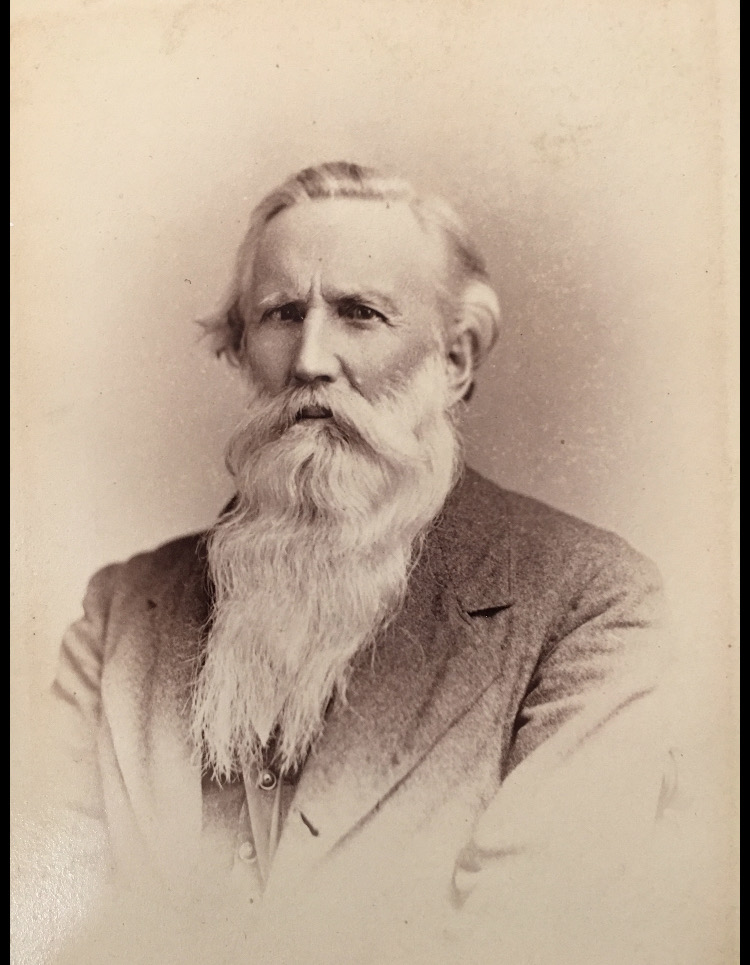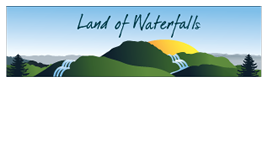
When Transylvania County was founded in 1861, many of the earliest organizers had Brevard streets named for them in honor of their contributions to the community. The next founder to be highlighted in this series is Francis Withers Johnstone (1813-1882). Johnson Street runs roughly parallel to Broad Street and terminates at each end at Maple Street and East French Broad Street. The name of the street changed over time and has been known as Johnstone, Johnston, and at last Johnson Street.
This town founder was much more difficult to determine accurate details for than any other thus far in the series. Francis, who also went by Frank, was not the only Francis Withers Johnstone from his family line. It seems it was a popular name among descendants, and so there is erroneous information that has accumulated about this family that contradicts itself, such as misidentification of spouses and children. The staff of the Local History Department would be appreciative of any descendants who have further clarifying information.
The Johnstone family lived in the Charleston, South Carolina area and had extensive landholdings there as well as in North Carolina. Francis was one of three brothers who reached adulthood; it was when his elder brother William Andrew Johnstone III moved to the Flat Rock, NC area that the rest of the clan followed suit in the 1850s.

Some sources say that Francis married Lelia Duncan, while others state Eleanor Ball Simmons (1816-1880). This seems to be a mistake that was perpetuated because our Francis had a nephew as a namesake who married Lelia. A plaque on the family mausoleum and federal Census records confirm that Eleanor was his wife. At the time of this publication, it remains unclear how many children the couple had. Some sources say the couple had no children that survived to adulthood; others indicate as many as seven.
Facts that we can confirm are that Francis and his wife had a house built in 1854 that they named Montclove. It was intended as a summer residence, and they were not alone in desiring a mountain escape. They and other cohorts were all based in the Charleston, SC area and summered in the western NC mountains.
The Charleston contingent worshipped together as well. Their congregation in Charleston was associated with St. Paul’s Episcopal Church, so when they started their own small church, they named it St. Paul’s-in-the-Valley. Their first meetings were held at the Johnstone’s Montclove, though the group eventually grew into what is now the St. Philip’s Episcopal Church.
Francis and his brothers McKeown and (William) Andrew bought acreage in Transylvania County around what is now Glen Cannon. They brought slaves with them to work the land and are recorded as the largest slave owners in Transylvania County. However, this was still only a small number of the enslaved people owned by the Johnstones, as the majority were still in South Carolina on the family plantation.

When prominent landowners in town worked for the creation of Transylvania County, Francis Johnstone was named as one of seven new justices and was also appointed to the building committee. He and two others were charged with the task of ensuring that a brick courthouse be built, though a frame courthouse was utilized until after the conclusion of the Civil War when attention could be turned back to construction.
The Civil War changed everything for the Johnstones. When the County was formed in May 1861, it was announced almost immediately after that North Carolina had seceded from the Union and would be allying with the Confederacy in the Civil War. Perhaps it was Frank’s status as a plantation owner and vested interest in protecting his income that led him to be named Captain Francis Johnstone Company “E” 28th regiment.
During the war the family stayed in Transylvania County, presumably to avoid the greater conflicts happening in the Charleston, SC area. It was also during this time that brother Andrew Johnstone III (who remained in Flat Rock) was killed by bushwhackers at his estate, Beaumont. After this, many family members moved to Spartanburg, SC. Some speculate that the variance in the number of Francis and Eleanor’s children could be additional nieces and nephews adopted after the death of his brother.
Despite the uncertainty around details of his life, the impact of this county founder is remembered in the name of Johnson Street. Photographs and information for this column are provided by the Rowell Bosse North Carolina Room, Transylvania County Library. This article was written by Local History Librarian Laura Sperry. Sources available upon request. For more information, comments, or suggestions, contact NC Room staff at [email protected] or 828-884-1820.



